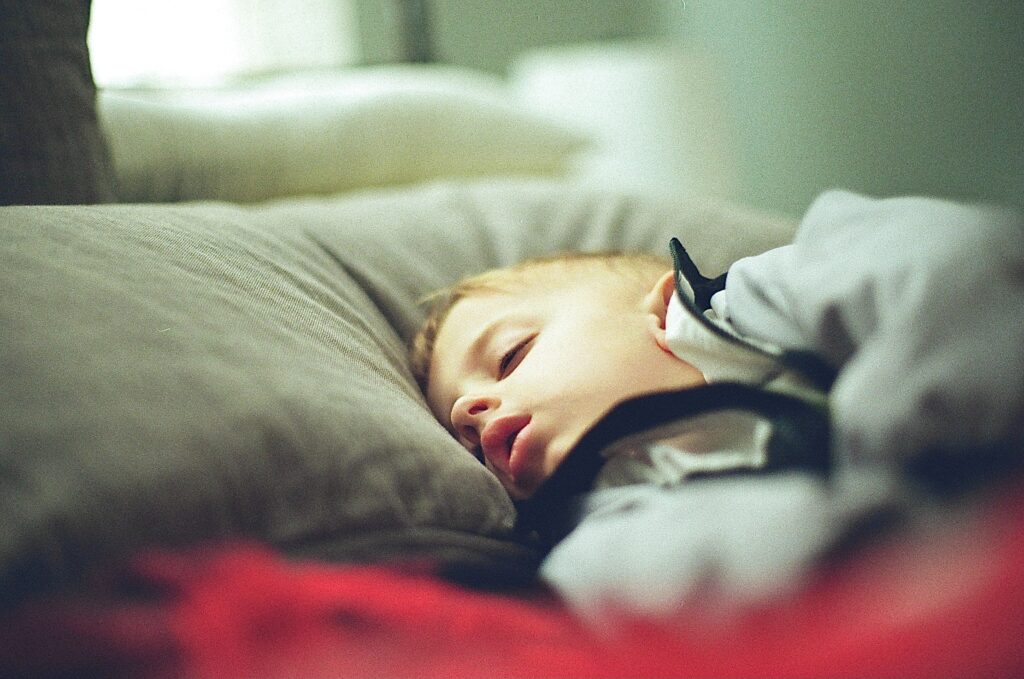There are many parents in our situation who are desperately trying to find out what helps an autistic child sleep.
Naturally it varies from child to child but in this article we will do our best to point you in right direction of some things to try.
Autism and sleep
It is quite commonly known that children with autism often have difficulty falling and staying asleep, which can lead to problems with their mood, behaviour, and ability to learn.
While we can’t wave a magic wand we will explore some strategies that may help your child sleep better.
Embrace routine
Autistic children thrive on routine so a key step would be to establish a constant routine at bedtime.
An example of good routine would involve a set bedtime and a series of calming activities such as a warm bath, reading a book, or listening to soft music in a particular order.
Try to stick to the same routine every night and avoid activities that may be stimulating or exciting, like playing video games or watching TV.

Create a sleep friendly environment
This sounds like common sense but it is easy to forget or overlook.
Your child’s environment should be conducive to sleep, with low light levels, comfortable temperatures, and minimal noise.
Some autistic children may be particularly sensitive to certain stimuli, so it is important to address any sensory issues that may be affecting their sleep.
For example, using blackout curtains, white noise machines, or weighted blankets can be helpful for children who are sensitive to light, sound, or touch.
Use visual aids
Many autistic kids respond well to visual aids such as picture schedules, social stories, or visual timers.
These tools can help the child understand what is expected of them at bedtime and provide a sense of structure and routine.
Visual aids can also be used to show the child how much time is left before bedtime, which can help them prepare for the transition.
You could incorporate visual aids into your routine you have built in that you could signal every stage with a picture card.
Consider dietary changes
Certain foods or drinks can interfere with sleep, such as those that contain caffeine or sugar.
Try to limit your child’s intake of these substances, especially in the hours leading up to bedtime.
On the other hand, foods that are high in tryptophan, such as milk, turkey, and bananas, can promote sleepiness and relaxation.
Get medical help
If your child continues to have trouble sleeping despite your best efforts, it may be helpful to consult with a healthcare professional.
They may be able to recommend additional strategies or interventions, such as behavioural therapy or medication, to help your child sleep better.
Many parents have also had success with Melatonin but clearly you should seek medical advice before trying that.
Summary – What helps an autistic child sleep
Sleepless nights are terrible for all concerned and can be particularly challenging with an autistic child.
Parents have had success with strategies that promote consistency, calmness, and structure.
By establishing a consistent sleep routine you can help your child get the sleep they need to thrive.

